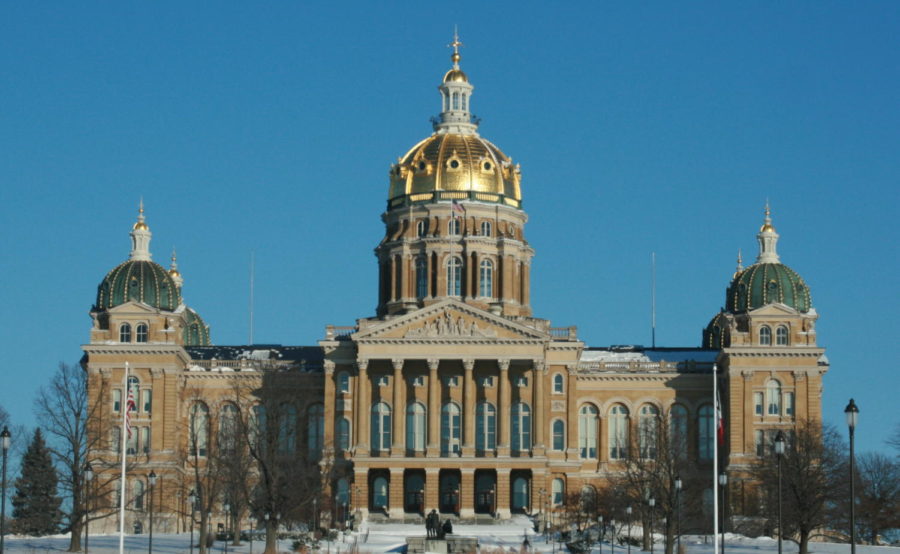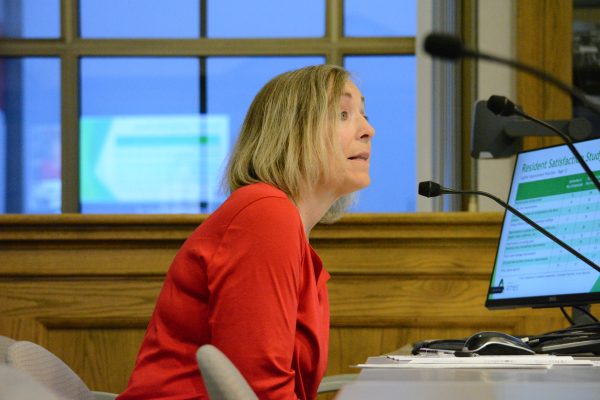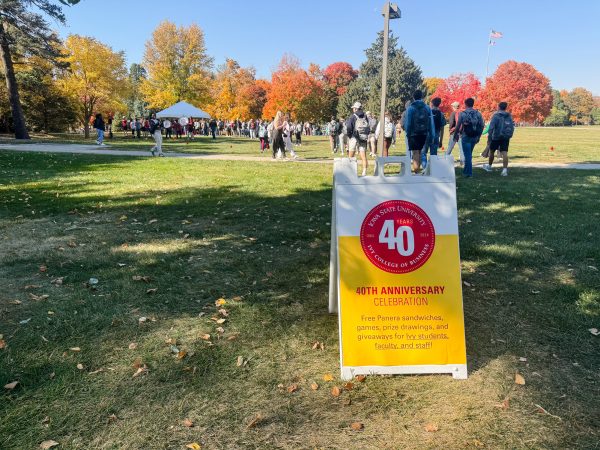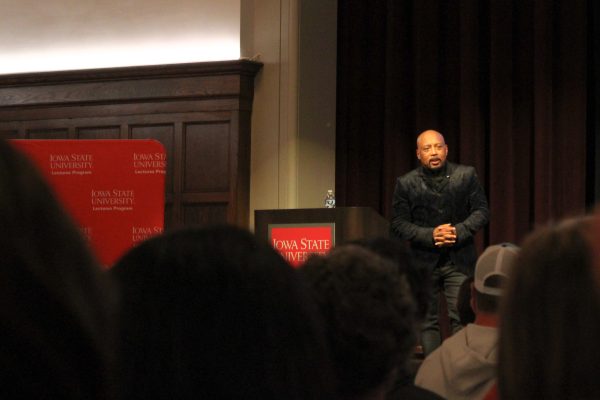- News
- News / Local
- News / Politics And Administration
- News / Politics And Administration / City
- News / Politics And Administration / State
- Politics
Local governments face revenue deficit
“These local governments had already programmed in what looked like additional revenue that they were going to receive, and now that rug was pulled out from under them,” Mack Shelley, a university professor in political science, said.
Iowa’s state capitol in Des Moines, Iowa
Local governments across Iowa are facing a deficit in revenue for their fiscal year 2023/24 budgets following the implementation of Senate File 181.
Senate File 181 was signed into law Monday by Gov. Kim Reynolds. The bill intends to fix an error made by the legislature in how multi-residential buildings were taxed. As a result of the bill, local governments are expected to see a decrease in their revenue.
“The information got out too late to have an impact on this current budgeting cycle,” said Mack Shelley, a university professor in political science. “These local governments had already programmed in what looked like additional revenue that they were going to receive, and now that rug was pulled out from under them.”
The lack of notification for local governments has resulted in them having to account for a deficit in proposed revenue.
“School districts, municipalities and a lot of other public entities are estimated to have planned for about $133 million of their total spending that doesn’t exist now,” Shelley said.
According to city documents, the council is set to consider a 13-cent increase to Ames’ property tax rate.
Mayor of Ames John Haila said the city opposed the bill due to the late notice on the necessary change, adding that the city was advocating that the legislature postpone the fix a year.
“We understand what they’re trying to accomplish, and so it is what it is, and we’re gonna just move on,” Haila said. “That’s probably the crux of the matter I think for all cities and counties, and we respect what their decision is.”
Ames City Manager Steve Schainker said city staff has concluded that a number of bills being proposed in the legislature may negatively impact city revenue sources.
“One is property taxes, which they want to cap the growth on the amount of taxes we can collect,” Schainker said. “Some may deal with our local option sales tax, […] some have to deal with bond issues and procedures for bond issues. So, it’s not one bill that passes; it’s a number of bills they’re talking about– and we don’t know which one will pass.”
Schainker said the moves being made in the legislature also inhibit the city’s ability to provide quality service to their customers.
“I watch state legislatures debate with federal government, and they always talk about states’ rights–that they would hope that federal government would allow the states the freedom to implement policies and actions,” Schainker said. “At the local level, we call that home rule that we would hope that the state legislature would allow the local governments to take the actions necessary to provide the services to their customers.”
Peter Orazem, a university professor in economics, said local governments should be able to adequately adjust to the change.
“This is relatively modest amounts of money involved even though it’s a lot in aggregate,” Orazem said. “If you look at the cost per city, $700,000 is not a very big chunk of the Ames budget.”
Orazem said he does not expect there will not be much impact for students.
“Since most students are in multi-residential properties, I don’t think this will have much of an effect at all,” Orazem said.
Shelley said if the city had to cut from programs the university does in partnership with the city such as CyRide and fire services, the legislature’s fix could unintentionally impact Iowa State’s budget.
“[There are] shared services between the City of Ames and Iowa State University, so to what extent a shortfall on the city side of budgets, to what extent ISU might be asked to make up for that, I don’t know,” Shelley said.
Your donation will support the student journalists of the Iowa State Daily. Your contribution will allow us to purchase equipment, send our student journalists to conferences and off-set their cost of living so they can continue to do best-in-the-nation work at the Iowa State Daily.












